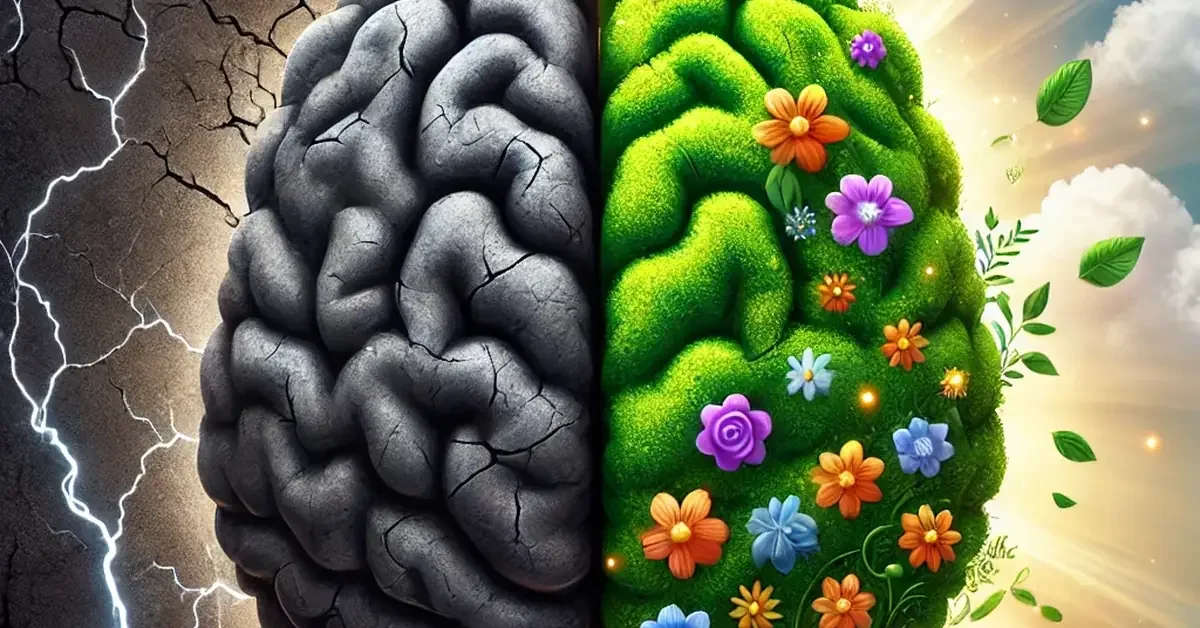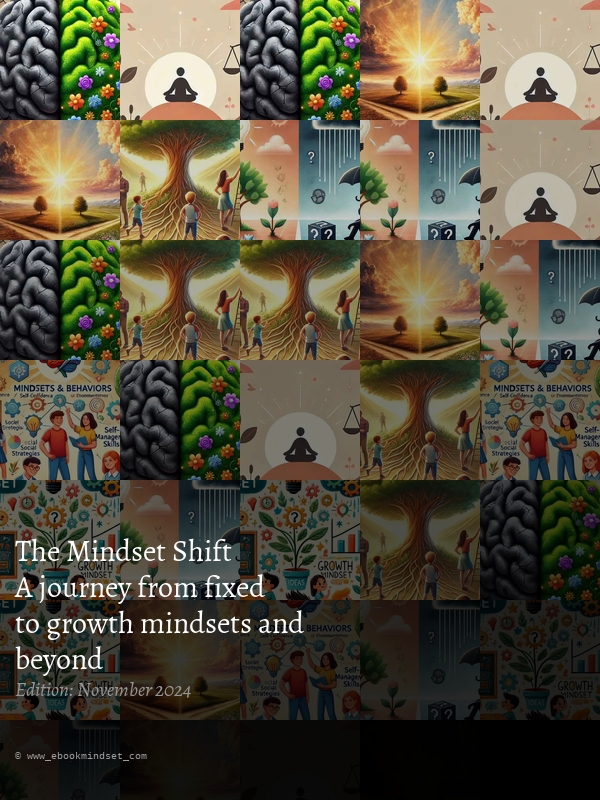What is a Fixed Mindset?
Popularized by renowned psychologist Carol Dweck, a fixed mindset is characterized by the unwavering belief that our abilities and intelligence are static and unchangeable traits. This deeply ingrained belief system has profound implications across various aspects of our lives, significantly impacting our education, careers, personal relationships, and overall well-being. This comprehensive article delves into the core characteristics of a fixed mindset, provides illustrative examples across different contexts, and explores the transformative power of shifting towards a growth mindset.
Key Characteristics of a Fixed Mindset
Belief in Innate Talent
Individuals with a fixed mindset fundamentally believe that talent is an inherent, predetermined quality. They see abilities as innate gifts, rather than skills that can be developed through dedication and effort. This belief often manifests as a sense of inevitability – if someone is "naturally" gifted, they will succeed; if not, they are destined to fail. A common example is the statement, "I'm just not good at math," which shuts down any potential for improvement.
Fear of Failure
Failure is viewed as a catastrophic event, not as an opportunity for learning and growth. In a fixed mindset, failure is equated with a lack of intelligence or inherent ability, leading to feelings of inadequacy and self-doubt. The fear of failure often paralyzes individuals, preventing them from taking risks or pursuing challenging goals. A telling example: "If I fail, it means I'm not smart enough," demonstrating a belief in inherent limitation.
Avoidance of Challenges
The fear of failure naturally leads to the avoidance of challenging tasks or situations. Individuals with a fixed mindset tend to steer clear of anything that could potentially expose their perceived limitations. They prefer sticking to what they already know, limiting their exposure to new experiences and opportunities for growth. For instance, an employee might avoid new responsibilities that require learning new skills, fearing they might not perform perfectly from the outset.
Resistance to Feedback
Constructive criticism, intended to help individuals improve, is often met with defensiveness and resistance in a fixed mindset. Feedback is interpreted not as helpful guidance, but as a personal attack, highlighting perceived flaws and inadequacies. For example, a manager might become defensive when receiving improvement suggestions, unable to see the value in constructive criticism for their professional growth.
Feeling Threatened by Others' Success
Instead of finding inspiration in the achievements of others, individuals with a fixed mindset often feel threatened or envious. The success of others is interpreted not as a source of motivation, but as a reminder of their own perceived limitations. This can lead to feelings of inadequacy and resentment, hindering their own progress and personal relationships. The focus shifts from self-improvement to competitive comparison, a detrimental aspect of the fixed mindset.
Examples of a Fixed Mindset in Different Contexts
Education
- Example 1: A student struggling in science might declare, "I’ll never understand this subject," prematurely giving up and failing to seek assistance or explore different learning strategies. This demonstrates a belief in inherent inability rather than a lack of effort or appropriate learning methods.
- Example 2: A naturally talented student might avoid advanced classes, fearing that they might not excel, thus avoiding the challenge and potential for growth. This reveals a preference for maintaining a perceived level of competence over striving for continuous improvement. The avoidance of challenges hampers potential academic achievements.
Workplace
- Example 3: An employee consistently avoids challenging projects, fearing failure and the potential impact on their job security or performance reviews. This passive approach restricts professional growth and limits opportunities for advancement.
- Example 4: A manager resisting feedback on their leadership style might stagnate professionally, failing to adapt and improve their management skills. This inflexibility limits their effectiveness and prevents their team's growth.
Personal Relationships
- Example 5: A partner might become resentful instead of supportive when their significant other achieves success. This stems from a perceived threat to their own self-worth and the belief that one person's success necessarily diminishes the other's.
- Example 6: Friends who refuse to apologize, even when they are in the wrong, struggle to maintain healthy relationships. This inflexibility reflects an unwillingness to acknowledge mistakes or engage in self-reflection, key elements of healthy personal interactions.
Sports and Athletics
- Example 7: A young athlete might give up after failing to make a team, believing they lack inherent talent rather than recognizing the need for additional training, practice, or skill development. This belief undermines the athlete's potential for perseverance and improvement.
- Example 8: An athlete might only play against weaker opponents, thereby avoiding the challenge of competing at a higher level and hindering their overall skill development. This limits their potential for growth and improvement.
The Impact of a Fixed Mindset on Personal Development
Lack of Resilience
Setbacks and challenges are interpreted as confirmation of inherent limitations. Instead of viewing failures as learning opportunities, individuals with a fixed mindset experience setbacks as insurmountable obstacles, impacting their motivation and ability to persevere. This lack of resilience hinders progress and limits their potential for future success.
Limited Growth Opportunities
The avoidance of challenges directly restricts learning and personal growth. By consistently choosing comfort zones over opportunities for growth, individuals with a fixed mindset actively limit their potential for skill development and knowledge acquisition. This self-imposed restriction limits their overall potential.
Negative Self-Perception
Constant comparison with others, fueled by a belief in inherent ability, results in low self-esteem and a negative self-image. The focus on external validation rather than self-improvement leads to self-criticism and diminished self-worth. This negative self-perception can affect multiple aspects of a person's life.
How to Shift from a Fixed Mindset to a Growth Mindset
The good news is that a fixed mindset isn't an immutable trait. By actively cultivating a growth mindset – the belief that abilities can be developed through dedication and hard work – we can unlock our full potential and lead more fulfilling lives. The transition requires conscious effort and consistent practice.
Acknowledge Your Mindset
The first step is recognizing and acknowledging the presence of fixed mindset thinking patterns in your own life. Pay attention to your inner dialogue. Are you labeling yourself or others with fixed traits ("I'm just not creative," "He's naturally lazy")? Identifying these patterns is the crucial first step towards change.
Embrace Challenges
Actively seek out challenges and view them not as threats but as valuable learning opportunities. Stepping outside your comfort zone is essential for growth. Embrace the discomfort and learn from mistakes rather than avoiding them.
Reframe Failure
Instead of seeing failure as evidence of inadequacy, reframe it as a valuable learning experience. Analyze what went wrong, adjust your approach, and try again. Failure provides valuable insights that lead to improvement.
Seek Feedback Actively
Actively solicit and embrace constructive criticism as a tool for growth. Be open to feedback from others and use it to identify areas for improvement. Don't be defensive; view feedback as an opportunity for learning and development.
Celebrate Others' Successes
Cultivate genuine enthusiasm for the successes of others. Instead of feeling threatened, find inspiration in their achievements. This fosters a supportive environment and demonstrates a mindset focused on collaboration rather than competition.
Practice Self-Compassion
Be kind to yourself during setbacks. Avoid self-criticism and celebrate small victories along the way. Self-compassion is crucial for maintaining motivation and perseverance during the challenging process of personal growth.
Conclusion
Understanding the fixed mindset and its pervasive influence is the first step towards achieving personal and professional fulfillment. By recognizing its characteristics and acknowledging its impact on various aspects of life, individuals can consciously cultivate a growth mindset. This transformative shift involves embracing challenges, reframing failures as learning opportunities, actively seeking feedback, celebrating others' successes, and practicing self-compassion. Embracing this growth mindset is key to unlocking one's full potential and living a more rewarding and successful life.




